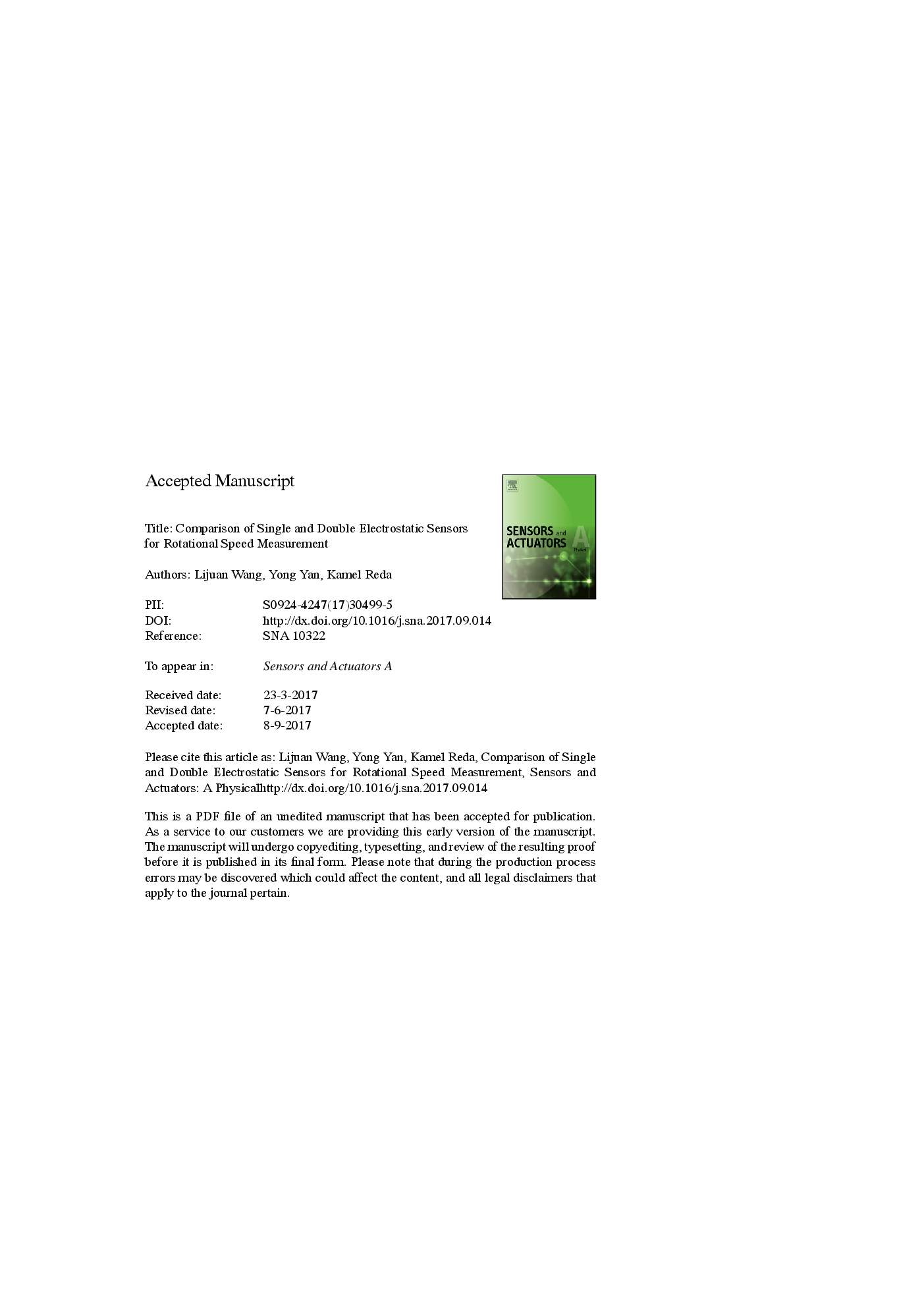ترجمه فارسی عنوان مقاله
مقایسه سنسورهای الکترواستاتیک تک و دو برای اندازه گیری سرعت چرخش
عنوان انگلیسی
Comparison of single and double electrostatic sensors for rotational speed measurement
| کد مقاله | سال انتشار | تعداد صفحات مقاله انگلیسی |
|---|---|---|
| 82097 | 2017 | 29 صفحه PDF |
منبع

Publisher : Elsevier - Science Direct (الزویر - ساینس دایرکت)
Journal : Sensors and Actuators A: Physical, Volume 266, 15 October 2017, Pages 46-55
ترجمه کلمات کلیدی
اندازه گیری سرعت چرخش، سنسور الکترواستاتیک، پردازش سیگنال همبستگی، ارزیابی عملکرد، زبری سطح،
کلمات کلیدی انگلیسی
Rotational speed measurement; Electrostatic sensor; Correlation signal processing; Performance assessment; Surface roughness;

